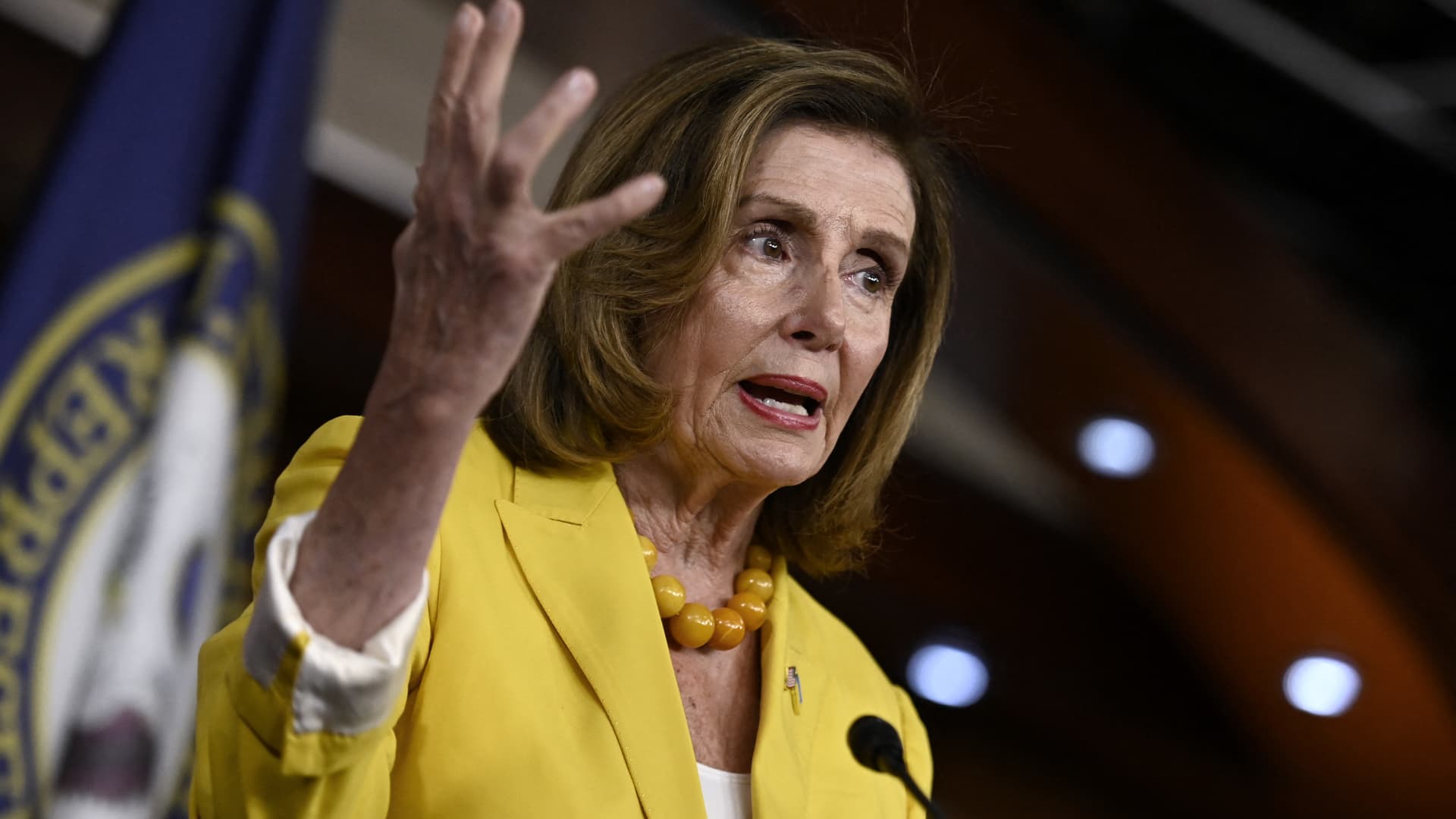House passes massive climate, tax and health bill, sending Biden a core piece of his agenda to sign


The House passed a sweeping tax, health and climate bill on Friday, delivering a major win for Democrats and President Joe Biden less than three months before the pivotal midterm elections.
The chamber approved the more than $430 billion package by a 220-207 margin, as all Democrats backed it and all Republicans opposed it. The measure, which caps a more than yearlong slog by Democrats to pass a core piece of their agenda, will head to President Joe Biden’s desk for his signature.
The bill, dubbed the Inflation Reduction Act, embodies the thrust of the Biden administration’s domestic “Build Back Better” agenda to reshape the U.S. economy as it emerged from the coronavirus pandemic.
Its provisions are estimated to raise $737 billion over 10 years. Democrats say the bill would reduce the deficit by more than $300 billion, citing analyses from nonpartisan congressional tax and budget offices.
The plan includes a record $369 billion in spending on climate and energy policies projected to slash the country’s carbon emissions by roughly 40% by 2030. It also allocates $64 billion to extend an Affordable Care Act program to reduce insurance costs.
Another key provision is prescription drug pricing reform: The bill would empower Medicare to negotiate prices on 100 drugs over the next decade, among other reforms that the Senate estimates will bring in $265 billion.
On the tax side, the bill would impose a 15% corporate alternative minimum tax aimed toward rich corporations that have been able to shrink their tax burden far below the 21% rate. It would also spend $80 billion on boosting the IRS’ tax enforcement and compliance capabilities, a move that the Congressional Budget Office estimates will yield $124 billion in revenue.
During Senate negotiations last week, Democrats also added in an excise tax on stock buybacks that is projected to bring in $74 billion.
The legislation narrowly passed the Senate on Sunday, overcoming the biggest obstacle on its path to Biden’s desk. Democrats substantially whittled down and reshaped the bill over more than a year in order to gain the support of a handful of key Democratic holdouts.
The bill passed the upper chamber through the reconciliation process, enabling Democrats to ram it through without any Republican support in the Senate, which is split evenly by party. Vice President Kamala Harris cast the tie-breaking vote, sending the bill to the Democrat-majority House.
This post has been syndicated from a third-party source. View the original article here.




